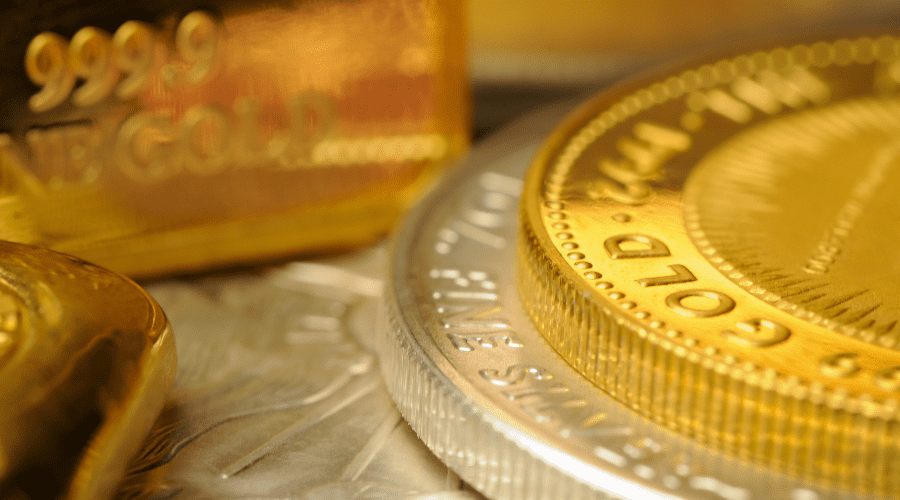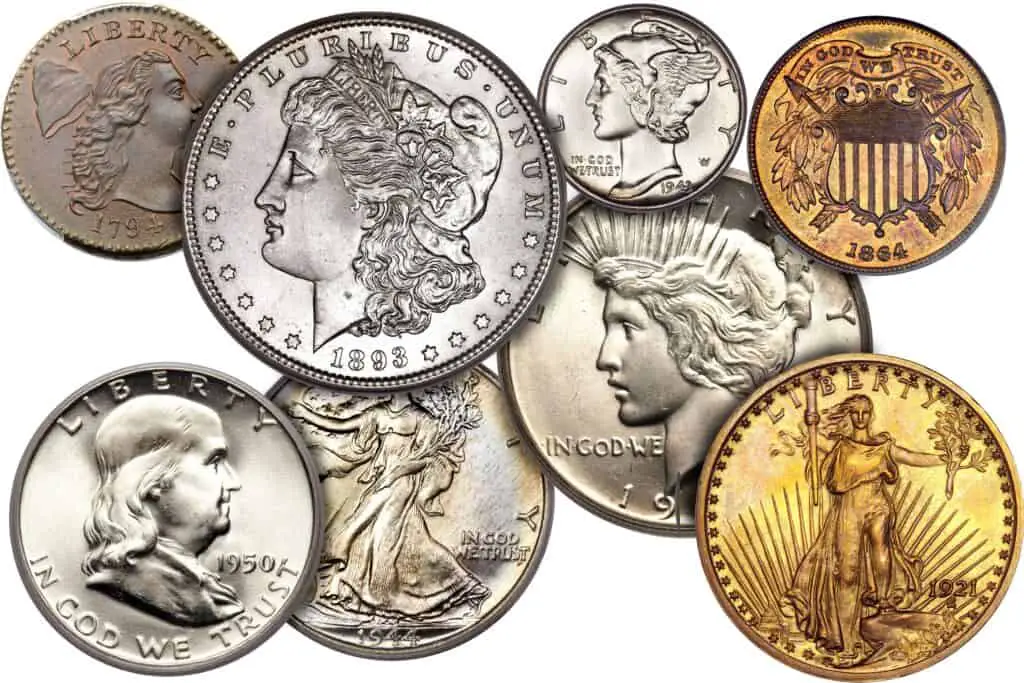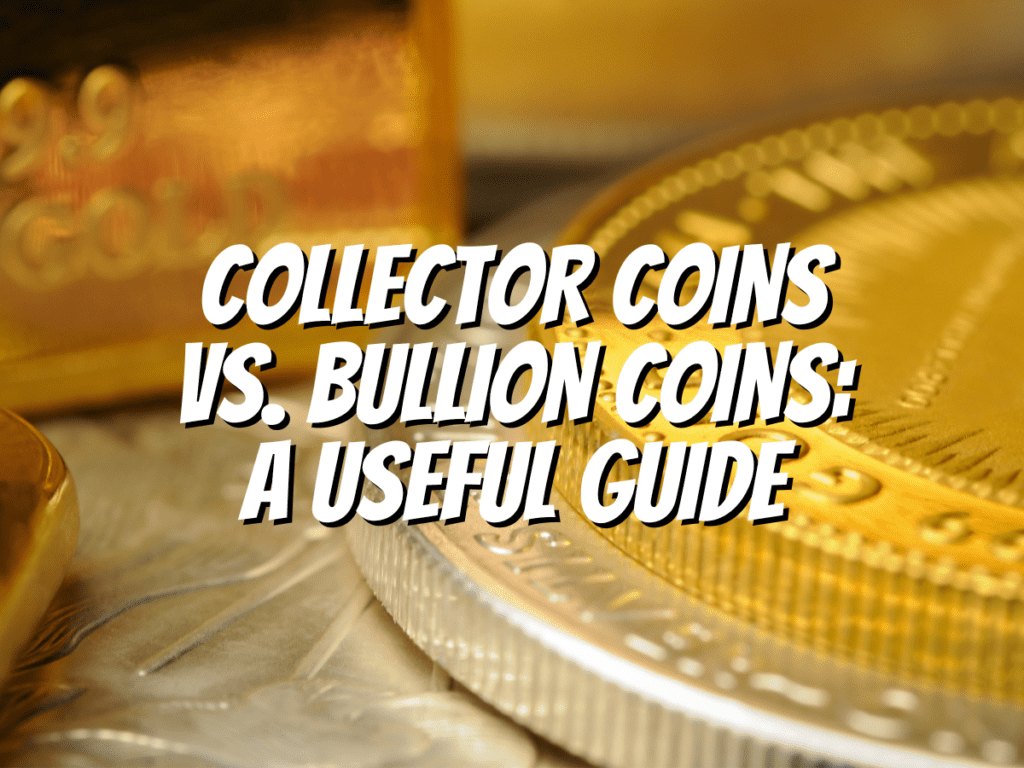Coins have been used as currency for thousands of years. The earliest coins were made of gold and silver, but other metals have also been added. With so many different coins available today, it can be difficult for a first-time buyer to know where to start. This article will compare bullion and collector coins to help you find which type is right for you!
What are Bullion Coins?

Bullion coins are made from precious metals, such as gold or silver. Therefore, they are valued for their intrinsic value, not their collectability or rarity. In other words, bullion coins aren’t meant to be collected. Instead, they are investment vehicles bought and sold based on their weight in the precious metal used to make the coin.
Bullion coins are minted by governments and central banks worldwide to meet the demand for these types of investments. Because they have no face value in monetary terms, some people refer to them as numismatic coins instead of bullion ones; however, most collectors consider this term redundant since all coins have some monetary value if sold at auction or online marketplace like eBay.
What are Collector Coins?

You can identify collector coins by the fact that they are minted for collectors in addition to being used as money. They’re also called numismatic coins, a “coin of the realm.” Collector coins are valued primarily on their rarity, condition, and age. They’re not intended to be used as currency; instead, they’re sold at a premium over their bullion value.
Collector coins often cost more than their intrinsic value due to scarcity and desirability among collectors. For example, suppose you have a coin minted in 1891 designed by an artist famous for his work on ornate gold pieces but also designed other silver bullion products (such as a commemorative quarter). In that case, your coin will likely sell at auction for more than its metal content alone would command because it’s unusual and rare—it’s considered valuable because someone else wants it too!
Pros and Cons of Bullion Coins
In short, bullion coins are a great way to invest in silver or gold. Here’s why:
- They’re cheaper than collector coins. While collector coins can be expensive, bullion coins are generally much more affordable. This makes them accessible to a broader range of investors.
- They’re easier to get than collector coins. While many collectors pick out the perfect coin for their collection, most people don’t have the time—or patience—to do so! With bullion coins, you know exactly what you’re getting when you buy one and don’t need to worry about getting stuck with an ugly one later on down the line (although some would argue that all bullion coins are ugly).
- They’re more liquid than collector coins. Liquidity refers to how easily an asset is traded; if something is liquid, then it means that there are plenty of buyers and sellers who want/need the asset at any given moment in time, so it should always be easy for someone else like yourself interested in buying/selling said asset too! Because of their higher liquidity levels compared with other types of investment vehicles such as stocks or bonds, which aren’t as easy-to-use during times when market volatility increases due to sudden shifts within global economies around us today – making them safer investments overall.”
Pros and Cons of Collector Coins
- Higher premium. Collector coins are more expensive than bullion coins, but that’s because they have a higher premium. The premium is the value added to the base price of a coin to account for its rarity and desirability as an investment asset. If you buy a rare collector coin today, it will be worth more in five years than it costs now (assuming you keep it safe and don’t lose or damage it).
- More difficult to find. While this may be inconvenient for collectors who want to get their hands on certain coins, there are benefits: Because fewer people will own them, it becomes easier for dealers and collectors alike to sell these rare coins when they want—and at better prices than other types of gold or silver items would command!
- More difficult to sell. The flip side of the fact that collector coins are easier to sell comes down to supply and demand: If there aren’t many collectors out there looking for specific types of collectible pieces, then potential buyers won’t see them as often either which means those pieces don’t always command reasonable prices on secondary markets like eBay or Amazon Marketplace where sellers can list their unwanted goods online instead of just giving them away locally as they might otherwise do with non-collectible items such as old jewelry pieces held together by duct tape.
Collector Coins vs. Bullion Coins: Which is Better?

- Bullion coins are for investors. Bullion coins are your best bet to invest in gold and silver. They’re cheaper than collector coins, and they’re more liquid—meaning that you can get rid of them quickly.
- Collector coins are for collectors. If you want a rare coin for display purposes (or because you have a lot of money), collector coins are your best option. They’re also more expensive than bullion coins and tend not to be as liquid as they age; however, they can usually be resold if necessary (though with less profit than initially purchased).
As you can see, there are pros and cons to each type of coin. Whether or not you choose to invest in bullion coins or collector coins depends on your personal preferences.
Bullion coins may be the better option for you if you’re looking for something with a low risk of depreciation. However, if you’re looking for something with aesthetic appeal and historical value in addition to financial worth, collector coins might be better suited for your needs (and tastes).
Before you go…
So there you have it! I hope this article helped you answer your questions!
Check out my next article: “What is the Difference Between Bullion and Numismatic Coins.”
Related Articles:

